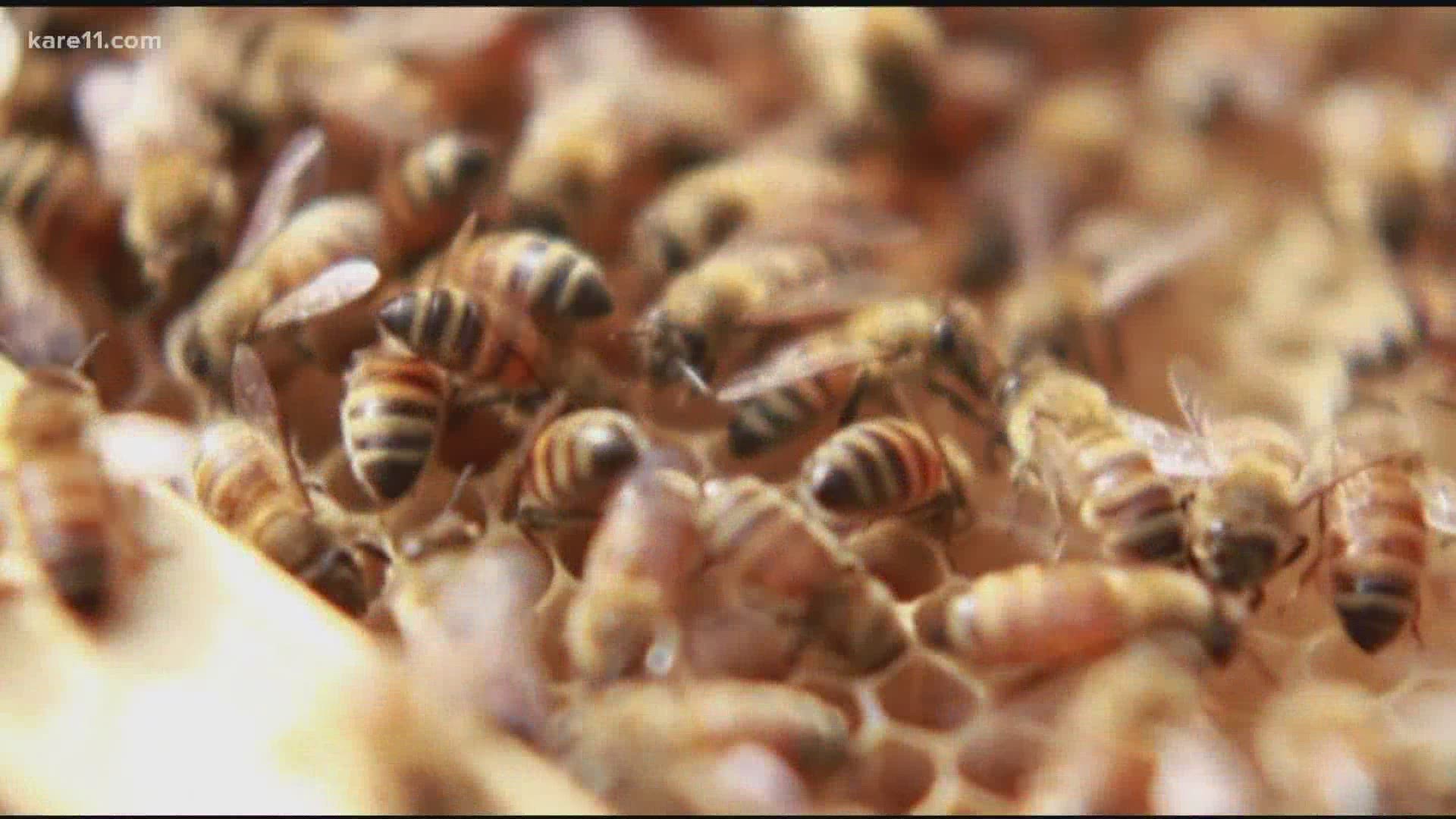MINNEAPOLIS — Bees and other pollinators are a vital part of our ecosystem, and one local company is taking advantage of some otherwise unused space to provide our buzzing friends with a much-needed habitat.
Target Center in Minneapolis has a "green" roof, and was the first arena in North America to create one on the 113,000 square foot space.
There are more than 100 different native plant species planted on the arena that houses the Minnesota Timberwolves. A few solitary bee houses, small tubes clustered together in little groups, are also on the roof to provide a safe place for mother bees to lay their eggs.
According to the University of Minnesota, honey and bumble bees only make up around 2% of the bee population. Most bees are solitary bees and don't live together in hives. They live on their own, as their name suggests, and build their own nests, collect their own nectar and lay their eggs without help from a colony.
Since Target Center is taking up space that could be used for plants on the ground, the green roof seemed like a good solution, according to Nikolas Liepins, the CEO of Bee Kind MN.
"Take those flowers that were once on the ground that was replaced with a building, then put them right them right on top" he said.
With plenty of food and space to stretch their wings, it's a paradise for Minnesota's pollinators - like a meadow in the sky, hidden in plain sight.
Minnesota is home to around 450 different species of native bees, like the yellow-faced bee and the rusty patched bee.
"They're also around 90% better at pollinating than honey bees are, so they are extremely vital for agriculture," said Liepins.
Our native bees are going unnoticed, but are needed so we can enjoy produce like apples, cucumbers, pumpkins, blueberries, and much more.
So what can you do to "bee" kind to these vital insects?
One thing is to stop using pesticides on your lawn and in your garden.
Another is to plant more flowers.
"There are not enough bee-friendly flowers to solve that," Liepins said. "It's as simple as to throw some friendly pollinator seeds in the backyard in your garden."
Because our lives without bees, would certainly be less colorful.

